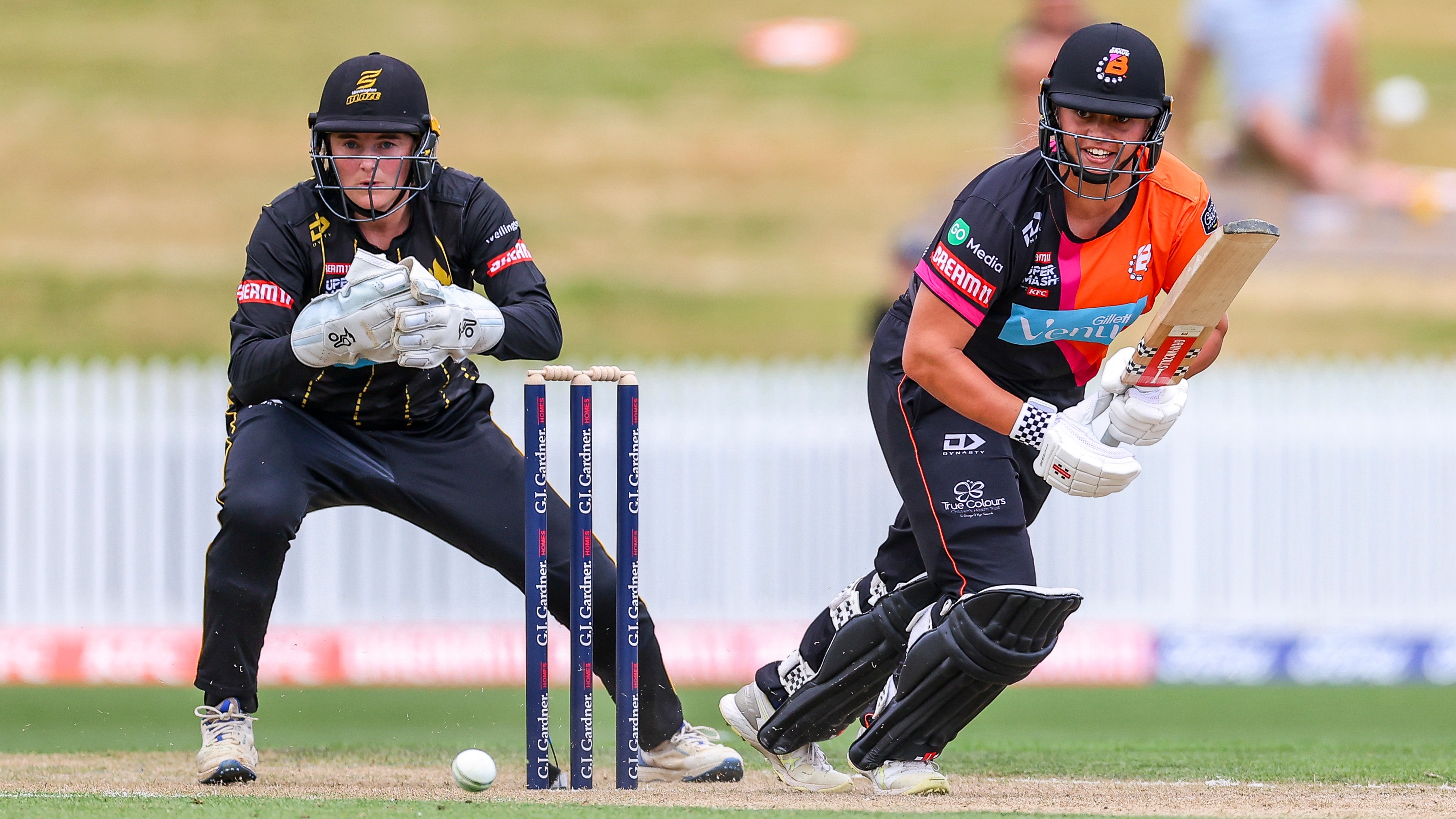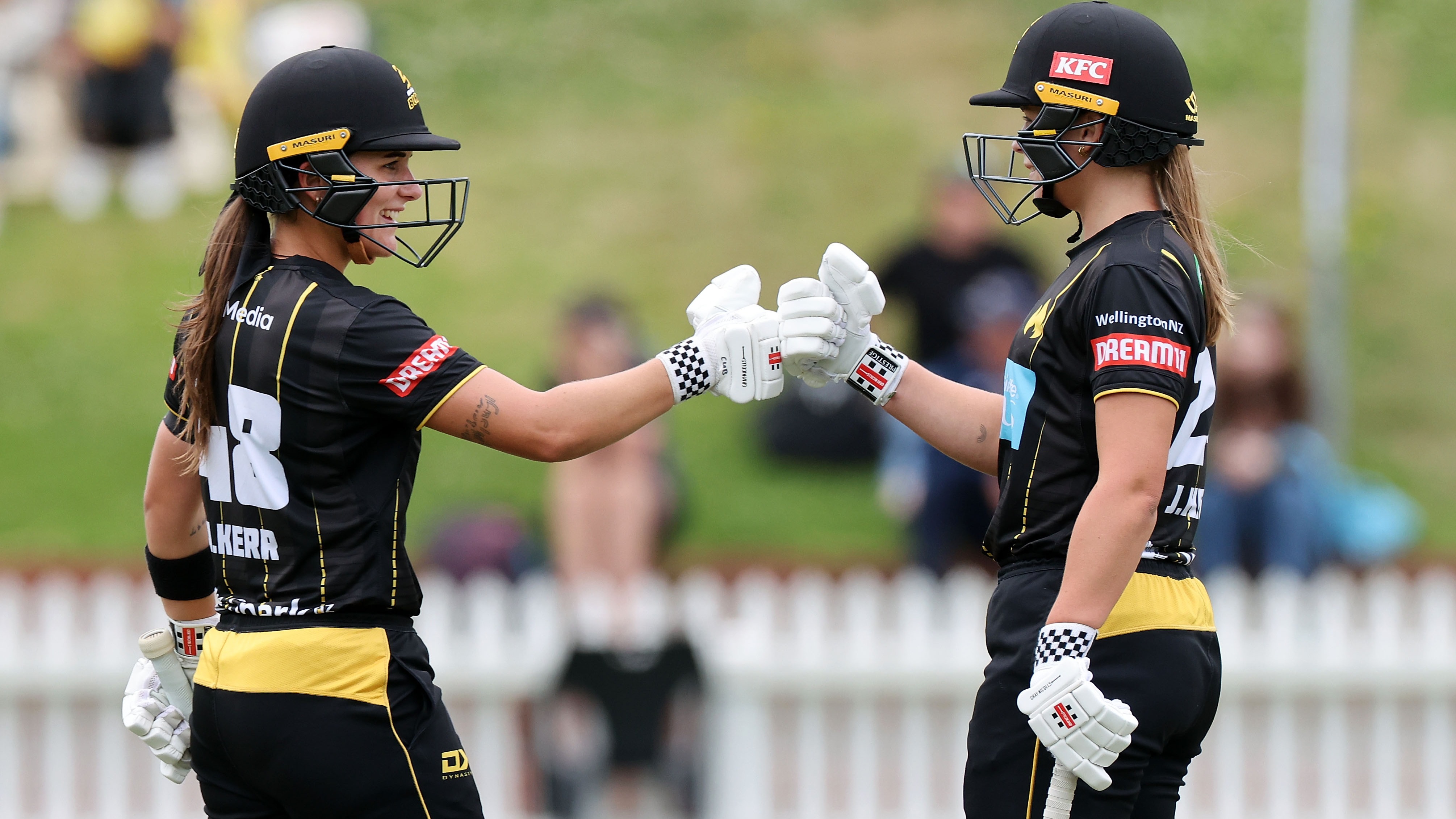📻 How to tune into Sport Nation
Alex Chapman: Why Super Smash privatisation must be considered
Alex Chapman • February 6th, 2025 11:00 am
Photo: Photosport
With the sun now set on another Super Smash season, it’s worth considering where the future of the competition lies, and what New Zealand domestic T20 cricket may or could look like in one, five… even 10 years.
This year was the first time some of the more recognisable names in the sport on these shores were absent throughout - or at least, for large chunks of - the competition, as they opted for overseas opportunities.
Was their presence missed? Perhaps. Were they massively noticeable? Maybe. But this may be just the start of such instances. Would we really be surprised if six, eight, 10 players follow suit next year?
And can you blame them? I know of players who would have struggled to get 15 percent of what they would have got heading to the likes of the Big Bash, SA20 and IL20, had they stayed in New Zealand and played the Super Smash.
Fifteen percent. Imagine such an enormous growth in your finances.
But I’m unsure just how sustainable the current model is, or rather, if we’re to spin it more positively, whether there’s room for potential growth.
The Super Smash costs millions of dollars a year to put on, and with all due respect to the competition, you can’t help but wonder whether fans are engaging with it as much as administrators would like.
And by the way, I say that as someone who loves watching domestic cricket.

Northern Brave Women's Yasmeen Kareem vs Wellington Blaze, Super Smash I Photo: DJ Mills/Photosport
The cricket world is changing rapidly before our eyes. Fifteen years ago, players were lambasted for prioritising T20 leagues over their country. And while many still criticise, it feels like those voices are the louder rather than larger ones. You know the ones I mean, the person who feels the need to yell their opinion to try and have more people hear it, even though it’s an unpopular and perhaps unsubstantiated one.
Perhaps we’ve grown up, or maybe just have a greater awareness, understanding and acknowledgement that athletes have smaller windows to capitalise on financial opportunities, compared to what the rest of us have in our careers.
Take Kane Williamson as an example. Had he remained on a full-time NZC contract, he would’ve had to play Super Smash and in the Sri Lankan white-ball series.
Instead, the flexibility of his casual deal has allowed him to go to South Africa, make more money than he would’ve in Aotearoa during that period, and still play the majority of the home summer and the upcoming Champions Trophy.
Lockie Ferguson’s another case - Big Bash, IL20, New Zealand.
As it stands, I wouldn’t be surprised if we see even more players, perhaps double digits, opting out of central contracts to pursue such opportunities.
Should Super Smash teams be privatised? | Sport Nation Mornings
Such tournaments have worked all over the world. The Caribbean has rapidly become an established comp, Major League Cricket in the States is a new drawcard which offers an untapped market and unforeseen possibilities, and obviously the IPL has been at the forefront of franchise growth. Those are just three of the goodness knows how many around the world.
So, could it work here? And how?
Let’s spit ball this - six teams, as per the current model, but in more centralised and enticing locations (no disrespect to smaller markets) - Auckland, Tauranga, Wellington, Christchurch, Queenstown and one other.
It would allow fans to engage better with teams, given, as it stands, Central, Northern Districts, and Otago share their games across various venues within their large catchment areas.
Higher possible financial incentives would also appease players, and therefore fans, and could perhaps be enough of a drawcard to keep them here for part of - if not all - of that tournament.
It would also allow greater financial flexibility to bring overseas players here for both the men and women’s campaigns. Imagine a Ben Stokes lining up for his home region (he says in jest) of Canterbury for an entire Super Smash season.
And who’s to say - and this is completely unsourced - that a certain former All Black who already owns a football team in the country’s biggest city may want to also dip his toe into another sporting pool? Or perhaps the owner of another, more long-standing football team in the capital?

Photo: Photosport
As I said, this is mere spitballing. But the point is there’s enough wealthy people in this country who like cricket and may want to own a T20 team. Or even have owners of other franchises around the world buy into one here.
It’s already happened with other leagues. The investment fund that Tom Brady partners with bought into Hundred franchise, the Birmingham Phoenix, a Silicon Valley tech consortium with the London Spirit, an Indian conglomerate RSPG - who own IPL franchise the Lucknow Super Giants - will reportedly have a 70 percent stake in the Manchester Originals.
All of that is just in the last week, and in one competition. We’ve already seen various ownership groups and wealthy individuals involved in the likes of the IPL expand their presence into other countries.
On the note of other comps, it seems that every season there’s the discussion of New Zealand adding a team into the Big Bash.
Yes, there have been conversations at an administrative level about it. That’s a fact.
Stakeholders I’ve spoken to have given mixed feedback. Some players like the idea, some don’t. Some coaches do, some don’t. Some administrators do, some don’t. Those who do, think it’s a great idea because it gives New Zealand a footprint into a bigger T20 competition into a timezone similar enough that it wouldn't put off viewers, while also allowing players to enter a new market. Those against it believe it’d dilute the talent opportunities, the Super Smash, and become financially messy.
Regardless, I know of kids - now young men and women - who have grown up wanting to play for these T20 teams around the world.
They aren’t silly. They’ve grown up with these leagues being normalised in the cricketing lexicon. They see opportunities to not only go and play cricket overseas, but potentially live there periodically, work another job, or study.
While it wouldn’t entirely eliminate the possibility of this brain drain of cricketing talent, it could well keep it on these shores. And that in itself, could be a good enough reason to park up and watch some domestic cricket.
Is the Super Smash serving its purpose for NZ Cricket? | Sport Nation Mornings

